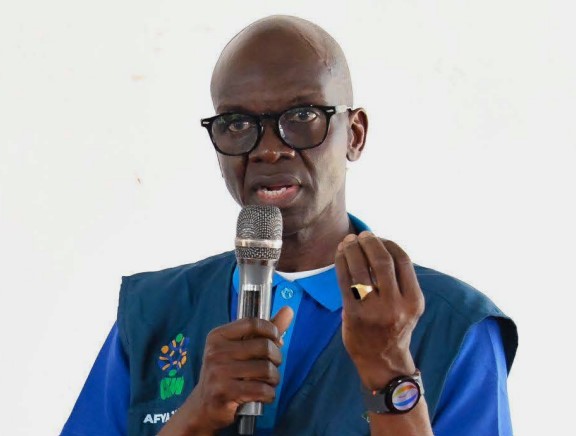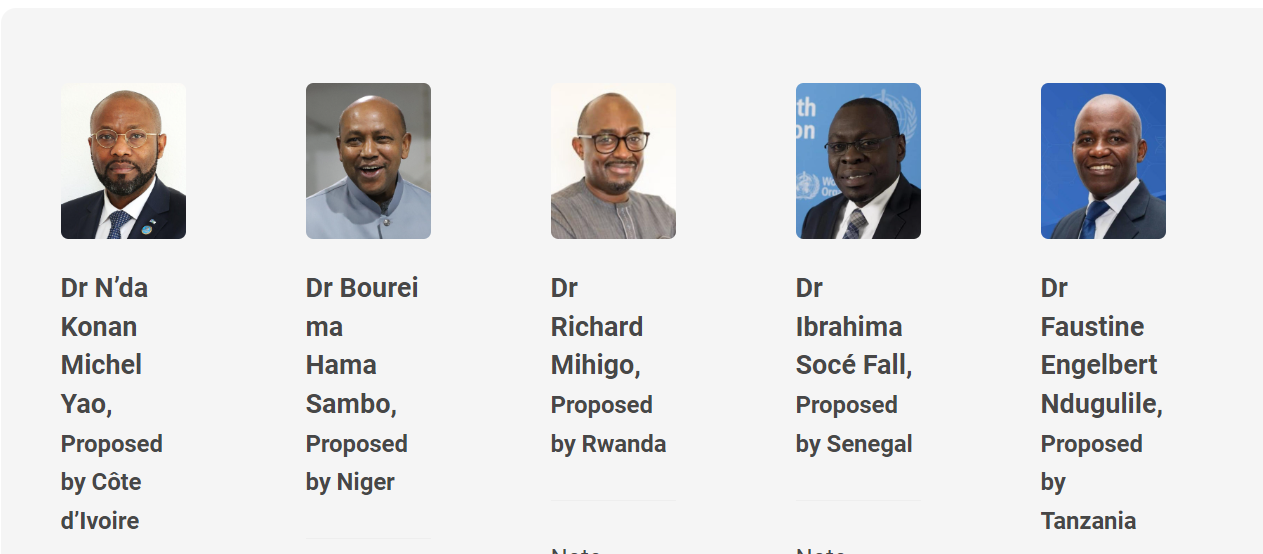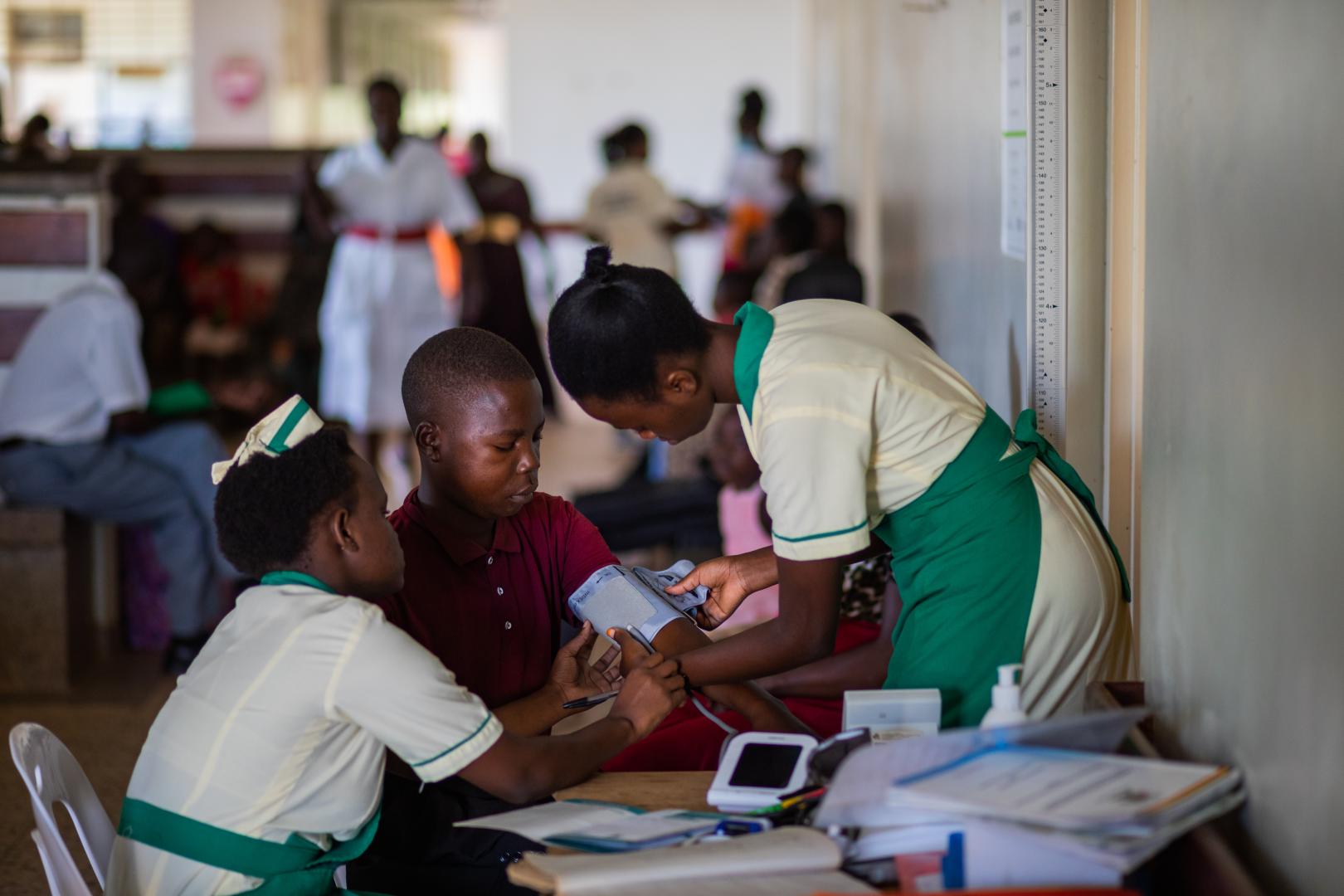This is a story of a man born on Christmas, 63 years ago and whose name, to many, has become synonymous with cardiology, wellness and personal health in Tanzania. That’s Janabi Mohamed Yakub, fondly known to the locals as “Professor Janabi.” Lately, he has been making headlines across the African continent and beyond after the World Health Organisation (WHO) released names of the candidates for the election of the next Regional Director for WHO African Region—one of them being him—a medical doctor at heart and public health leader.
If you assumed Janabi’s life was solely confined to academia as a professor and clinical practice as a medical doctor, you couldn’t be more mistaken, for beyond the lab coats and teaching schedules, lies a man of diverse passions and significant influence. First, he is a sports fan. And by the way, his passion for sports led him to serve on the board of Simba Sports Club, and now leads the Drug and Doping Committee for the East Africa-hosted AFCON 2027, ensuring fair play and integrity.
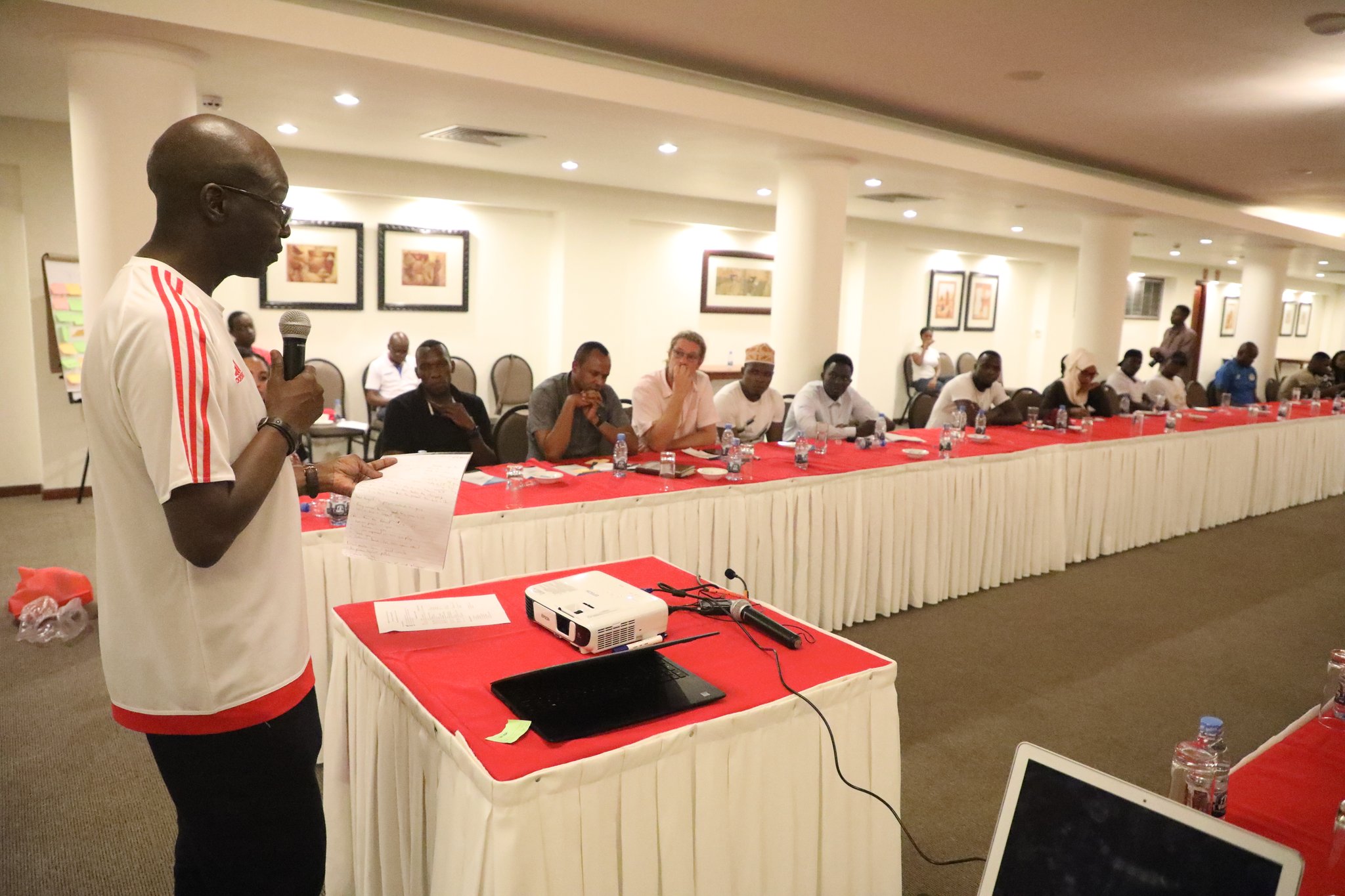
Beyond the roar of the stadium and the busy schedules as the top leader of the country’s largest hospital, Professor Janabi is a key advisor at the highest level of government in Tanzania. His top role? Janabi is the Senior Advisor on Health Matters to President Samia Suluhu Hassan where he advises on policy formulation, nutrition, healthcare reforms, strategic investments, global health, health security, and partnerships.
He was born in Moshi, Kilimanjaro Region on 25th December 1962 and his career path in health was set early, spanning clinical practice, research, administration, and active engagement in global health diplomacy. His mission in healthcare is deeply rooted in his childhood motivation to overcome the public health challenges that disproportionately affect Africa. As an African child, he witnessed firsthand the suffering caused by tropical diseases such as malaria, having survived multiple episodes of the disease including a near-fatal case as a teenager, he developed a deep commitment to fighting infectious diseases and improving healthcare systems.
Over the years, he has morphed gradually, from a passionate researcher-cummedical practitioner and Head of Presidential Physicians for former President Jakaya Kikwete; to leading Tanzania’s largest and multi-specialty tertiary hospital: The Muhimbili National Hospital (MNH).
However, what stands out now—and makes him the-man-to-watch is that Prof. Janabi harbors a unique career experience in healthcare and administration that has become a treasure to the field of medicine and public health.
More recently, Prof. Janabi was a key figure in developing Tanzania’s Universal Health Coverage (UHC) roadmap credited for helping in the reduction of maternal mortality by 81% and trained over 14,000 Community Health Workers (CHWs) with a target of reaching 150, 000 CHWs over three years. He strengthened political commitment to malaria control across the continent through his work with the African Leaders Malaria Alliance (ALMA).
As the founding CEO of the Jakaya Kikwete Cardiac Institute, he established a leading cardiac center in Africa, performing over 2,000 advanced procedures annually. His efforts reduced the need for overseas referrals by 95%, saving citizens millions in healthcare costs. Under his leadership, the institute became a regional hub, providing specialized cardiac care to patients from Malawi, Rwanda, Uganda, and Somalia.
He has also led responses to major public health emergencies, including raising awareness during the containment efforts for the 2023 and 2025 Marburg Virus outbreaks in Tanzania, through grassroots surveillance and cross-border collaboration. His contributions to clinical research include co-investigating landmark HIV vaccine trials (HIVIS, TaMoVac) and integrating telemedicine into rural healthcare.
Post the Ebola outbreak in West Africa (2014-16) , he played a vital role in addressing the crisis – both at home, in his capacity as Senior Advisor on Health Policy and Nutrition to President Jakaya Kikwete, and on the global stage, as a member of the UN High-Level Panel investigating the outbreak. In this dual capacity, his recommendations to the investigating team were instrumental in reshaping the WHO’s response strategy, strengthening containment efforts, and informing future pandemic preparedness frameworks. His expertise in cross-border disease surveillance and community engagement strategies proved particularly valuable in preventing the spread of the epidemic beyond West Africa and establishing protocols that would later benefit the continent during subsequent outbreaks.
As he seeks to become the next Regional Director for WHO-Africa, many could be eager to know: What does he take to WHO?
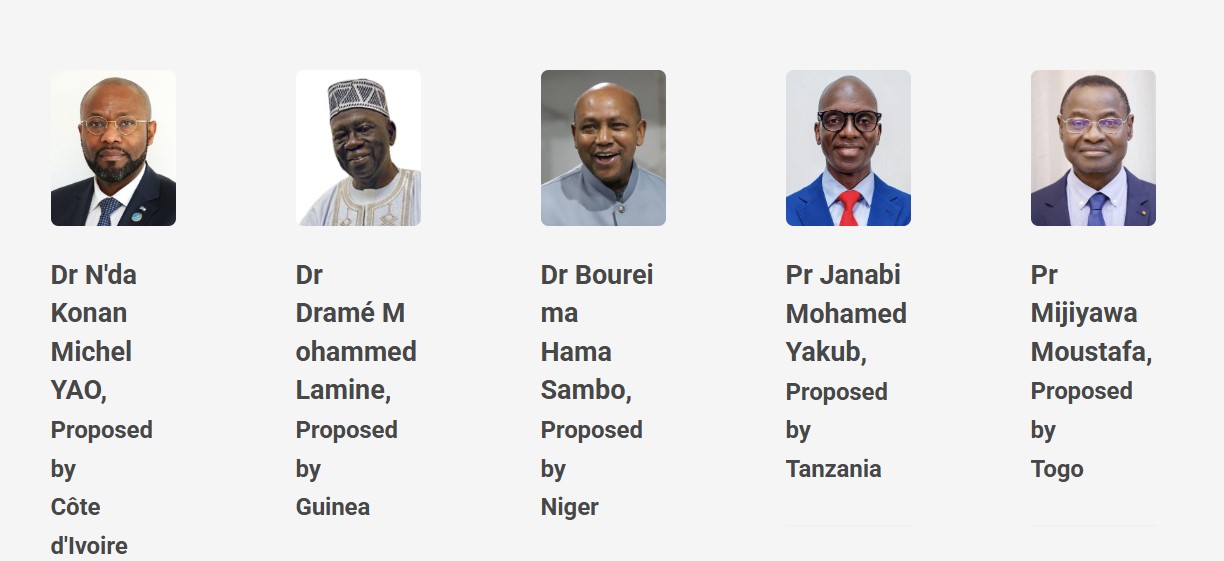
Janabi has presented his core priorities in the manifesto to the WHO, branded with a comprehensive approach to strengthening Africa’s health systems, beginning with ensuring Universal Health Coverage (UHC) by dismantling financial barriers and improving access to essential services. Central to his vision is the urgent need to address maternal and child health, aiming to drastically reduce the continent’s alarmingly high maternal and infant mortality rates through enhanced quality care and gender mainstreaming.
“We must transform health outcomes on our continent, and we must do so together. Indeed, that is why I believe that WHO-AFRO must now play a more important role than ever before,”
Prof. Mohammed Janabi
Equally critical is the robust combatting of communicable diseases like malaria, TB, and HIV/AIDS, alongside the rising burden of non-communicable diseases, through early detection, effective management, and widespread immunization. He emphasizes the foundational role of Primary Health Care (PHC), advocating for improved governance, infrastructure, and workforce development to create equitable and sustainable systems, drawing inspiration from landmark declarations. Recognizing the growing threat of climate change, Janabi is prioritizing the development of climate-resilient health systems through cross-sector collaboration to mitigate emerging health risks.
In recent years, Africa and the world in general—have been faced with disease threats and public health emergencies, threatening livelihoods and wrecking economies. How is Janabi positioned to handle such crises in Africa? Janabi says, in his manifesto, that he will tackle health security issues through pandemic preparedness to better equip Africa for future health emergencies.
“I support the ongoing pandemic agreement discussions through the INB and commend the Regional Director for leading Africa in amending the 2005 IHR and drafting the Pandemic Treaty with solidarity. I will encourage African Member States to finalize these efforts,’’ he says in his manifesto.
He is championing a multi-pronged approach to bolster African healthcare, emphasizing innovation and research to develop context-driven solutions, while forging strong partnerships with regional and global stakeholders to maximize resource and expertise sharing. He prioritizes combating antimicrobial resistance through robust surveillance and data reporting, and advocates for innovative domestic health financing models, including public-private partnerships and universal health insurance, to sustainably bridge critical funding gaps.
One might wonder; what fuels the audacious ambition behind Janabi’s sweeping strategies for African healthcare? The answer seems not to lie in mere aspiration, but in his go-getter attitude forged through years of experience in too demanding hospital roles, the strategic corridors of administrative offices, and the high-stakes arenas of global health engagements.
President Samia Suluhu Hassan has described Janabi as an “indispensable figure in the transformation of Tanzania’s healthcare system.”
“…his appointment as the physician to President H.E. Dr. Jakaya Mrisho Kikwete in 2005, he has left an indelible mark in our history, serving his country in multiple different roles including founding and running some of Africa’s most state-of-the-art public hospitals, and advising multiple Heads of State.”
Samia Suluhu Hassan-President of the United Republic of Tanzania
What has shaped his leadership?
Even in his nascent career, a shining star was discernible. His passionate dedication to medical research, evident early on, has prepared him for the future. This foundation proved invaluable as he ascended to the Executive Director position of the national hospital. Defying conventional expectations, he has seamlessly integrated his commitment to research with the demanding role of hospital leadership. This dual dedication proves how his exceptional capacity has been instrumental in transforming MNH into a vibrant hub for medical research, clinical care, and innovation. It’s at this hospital that he oversees a 4,000-bed facility and leading advancements in surgical care.
His appointment to the hospital’s top position in 2022 was met with widespread optimism, reflecting his established record of excellence in both clinical practice and scientific research. With a career spanning over 20 years, Janabi has established himself as a distinguished physician and researcher, a fact underscored by his extensive publications in prominent national and international journals and his receipt of prestigious awards, including the American Heart Association’s Young Investigator Award and the National Institutes of Health’s MERIT Award.
Did he have a dream?
Long before he was tipped on his potential for the WHO-Africa role, he consistently—mostly during media interviews— articulated his vision for healthcare in Tanzania and beyond, building upon the foundation he religiously committed to at the hospital: medical research at the national hospital. This revealed a man driven by purpose and committed to a mission that extends far beyond the confines of a single institution, showcasing that his leadership was always aimed at a much greater, continental impact.

His vision, to create a vibrant and collaborative environment for high-quality research addressing the health needs of Tanzanians and the wider African region, was well implemented at the national hospital (MNH). He demonstrated his capability by investing in research infrastructure, attracting top talent, and forging global partnerships. Given his proven ability to execute such a comprehensive vision at the hospital level, it’s evident that he possesses the capacity to replicate and amplify this impact on a continental scale. His established track record at MNH provides a compelling preview of his potential to revolutionize healthcare administration across Africa.
He attributes his ability to juggle administration, clinical work, and public health leadership to a clear, organized approach and strong team dynamics.
“One of the most important things is to have a clear vision and to be organized. I also make sure to delegate tasks and to trust my team. It is also important to take breaks and to recharge. I find that spending time with my family and friends helps me to stay balanced,” he says. This philosophy, successfully applied at the hospital level, underscores his potential to effectively manage the complexities of continental healthcare leadership.
Before his transformative leadership at the national hospital and the growing whispers of his potential for continental roles, his foundation was built upon a rigorous academic journey. But what’s his career journey like? From the lecture halls to the wards, his path reveals a dedicated scholar and a leader, a trajectory that laid the groundwork for his future impact on healthcare.
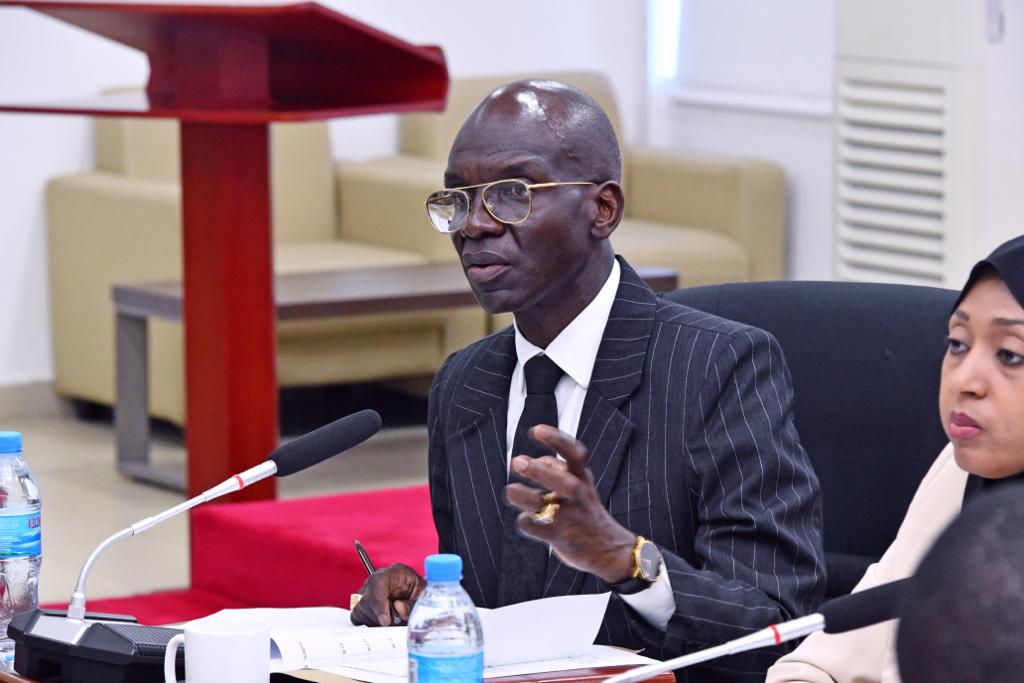
After earning his MD from Kharkiv Medical Institute in Ukraine in 1989, he pursued qualifications from renowned institutions like the Liverpool School of Tropical Medicine, the University of Queensland, Osaka University, and Bergen University. This global perspective, honed through advanced studies and fellowships, equipped him with a unique understanding of diverse healthcare systems.
His career in healthcare can easily be traced as far back as 1997 at MNH, where he rapidly ascended the ranks in clinical acumen and leadership—from Senior Medical Officer to Head of Cardiology. His tenure as Executive Director of the Jakaya Kikwete Cardiac Institute (JKCI) from 2014 to 2022 also solidified his reputation as a transformative leader.
His decade-long service as Chief Health Advisor and Head Physician to former President Jakaya Kikwete provided him with insight into national health policy and global health diplomacy. He contributed to the Primary Health Care Development Program, resulting in the construction of over 750 health facilities, and advised on global nutrition at Nutrition International.
He is also dedicated to mentoring the next generation of researchers, recognizing their vital role in the future of African healthcare. His founding of the Madaktari Africa Foundation, which supports medical education and research, exemplifies this.
Prof. Janabi is a strong advocate for global health equity. He contributed to discussions on critical health issues at numerous UNGA sessions. He has also participated in the Harvard Ministerial Leadership Program, focusing on ethical leadership and public policy. He has fostered collaborations with international organizations, including the WHO, CDC, JAICA, and KOICA, to enhance healthcare capacity in Tanzania





